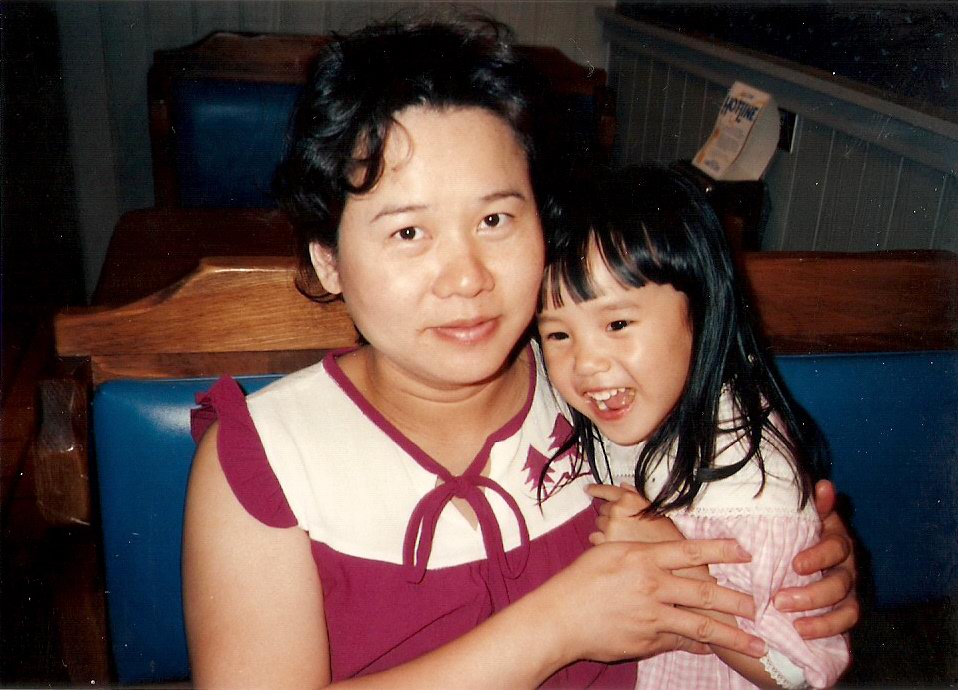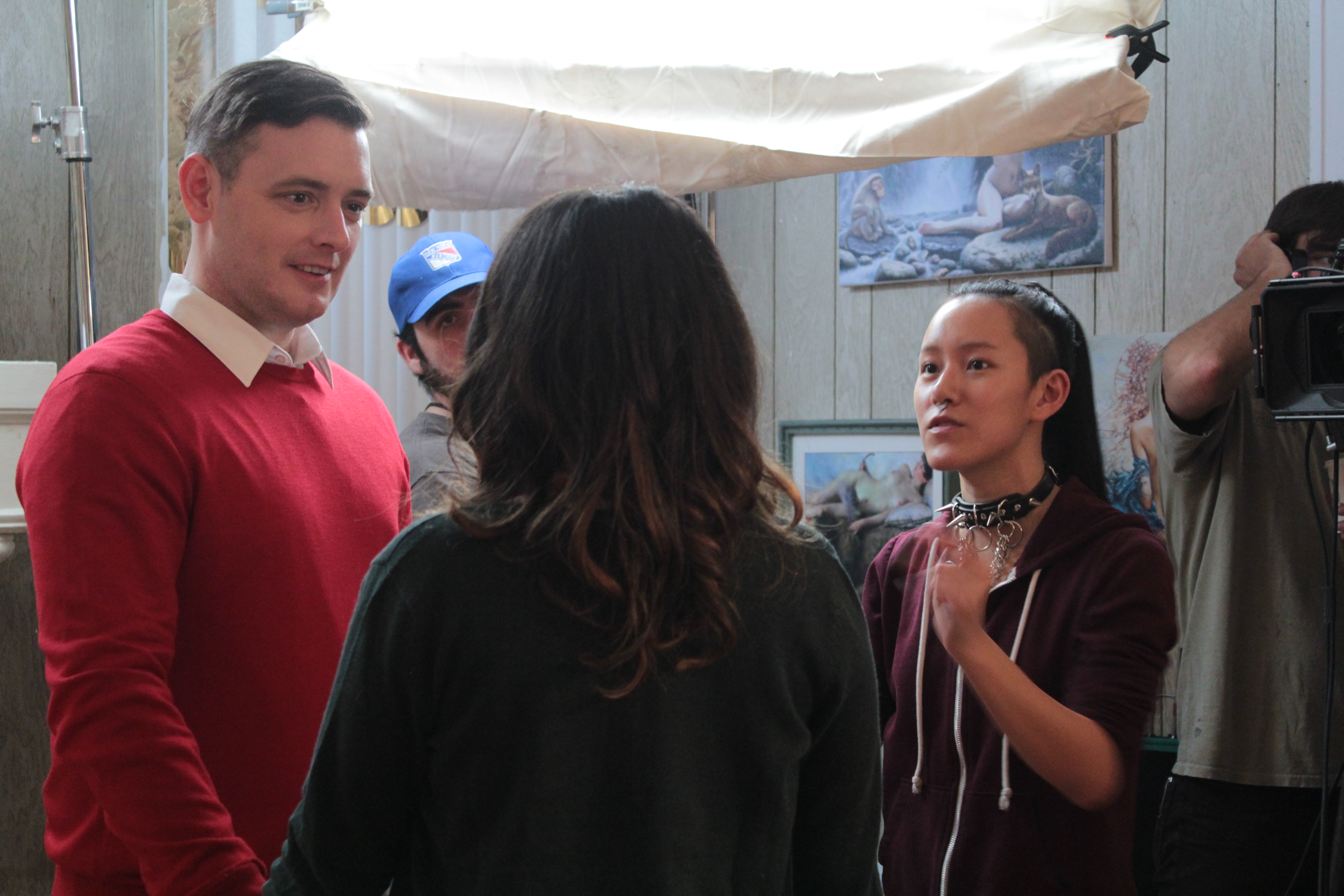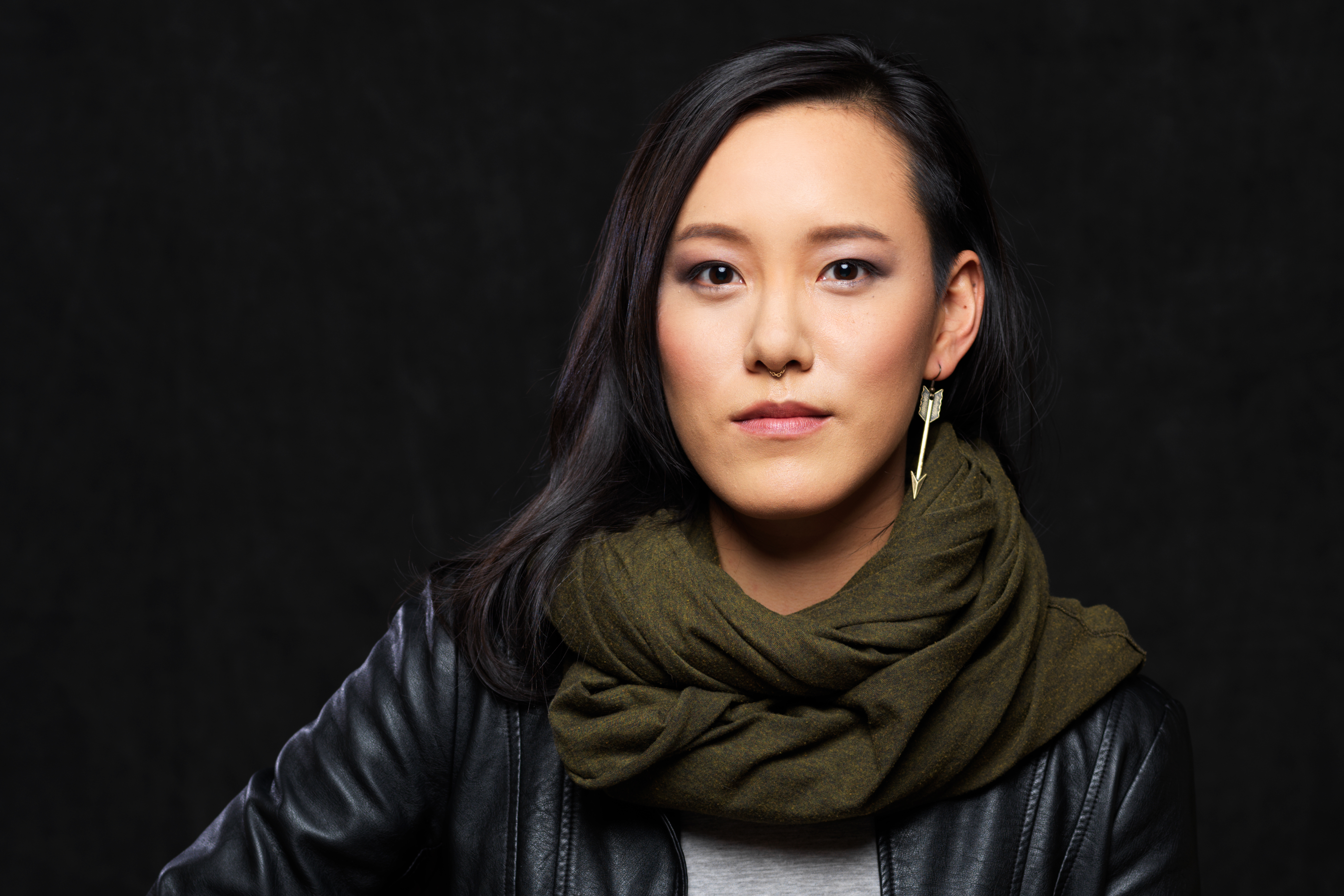
Independent filmmaker Anne Hu is cooking up a new project rooted in her own experience growing up Taiwanese American in a predominantly white suburb of Cleveland. Titled Lunchbox, this short drama will feature modern-day scenes of a woman cooking the foods from her mother’s cookbook, interspersed with childhood memories of her attempts to fit in with her classmates–and the effects this had on her relationship with her mother.
Writer Grace Hwang Lynch chatted with Anne to find out more about the inspiration for Lunchbox and where she is in the process.
G: How did the idea for Lunchbox come about?
I wrote Lunchbox in 2017. I was scrolling through my Facebook feed when suddenly a video called The Lunchbox Moment popped up on my screen. Curious, I clicked, and what quickly ensued was my deluge of tears. Stories of Asian Americans who were bullied for their homemade lunches sent me down memory lane, recalling my own painful memories of being teased for bringing my favorite home-cooked meal, zongzi, to school. As I watched the Asian Americans in the video express their love and gratitude for their parents, I desperately wished I could tell my mother how much I love her and how thankful I am for her. But I’ll never be able to do that. My mother passed away when I was 20. Overwhelmed with emotion, all I could do was sit down and write Lunchbox.

Since then, it’s taken years to get this love letter to my mother off the ground. I’ve workshopped this screenplay with writing groups and a filmmaker’s collective I am a part of (Filmshop). I could see that this story really landed with people. And yet applying for grants and writing competitions, it took until 2019 before it got attention. And even then, it still was a struggle. I feel like it’s only very recently now with the Stop AAPI hate stuff that it’s really taken off.
The timing was always right for Lunchbox to be made. It was always “relevant.” The “relevance” of AAPI stories shouldn’t have needed to be “validated” by a terrible wave of hate. This applies to not just to my story, but all other AAPI stories. But because there’s been this big rise of hate, I suppose it’s only made it more urgent to tell stories like this. We need our experiences seen and heard now. We need to support Asians in front of and behind the camera so that we can break the bamboo ceiling when it comes to this industry now. And we also need greater diversity of AAPI stories now.
It’s unfortunate that for years, we’ve had to defend or prove the “relevance” of our stories. But I am hopeful that this new wave of AAPI storytelling will bring the change we want to see.
G: Why did you decide to pursue this story, which has a much more expressly Taiwanese or Asian American theme than your other projects?
Why not? There was no conscious decision, [where I thought] “I want to make a Taiwanese or Asian American themed project.” That’s not how I create. What I create comes from something deep inside me that I need to express. In this case, my regret and love for my late mother. It is a Taiwanese American themed story, because I am Taiwanese American. And I am proud of that.
Regarding my past work, I’ve been using film to explore my intersectional identities over the years. What I understand of myself from 10 years ago versus now has evolved and I hope will continue to evolve. The short I made in 2014, Into the Woods, was about an abusive relationship. While it wasn’t centered around Asian themes, it did star an Asian male lead. I purposefully cast an Asian male lead because I wanted to show a leading Asian man and I wanted to depict him as desirable, something I felt I hadn’t seen enough of in mainstream media. My last short, Cake, had a main theme of sexuality, but I also had a sub-theme of the fetishization of Asian women in mainstream media.
I do think I’ve been using my work, both present and past, to unpack the internalized self-hatred or shame I may have had for myself growing up. I’m proud to be Asian now, and I think I’m still understanding what it means to be Asian American and what are all the different nuances of Asian American identity.

I think my work will only continue to explore my Taiwanese American identity but also all the parts of me that make me a whole and complicated person. To me, that’s what we need more of. AAPI stories that show Asian Americans in our full complexity.
G: Food is often an important role in Asian American storytelling (I’m speaking from my own experience, too, as I’m currently working on a memoir in which food is symbolic). Why does food seem to be such a powerful device for our stories?
I think food is very accessible. It’s such a love language and it’s got so much culture and history in it. Food is such a good jumping off point for conversation, understanding, and bonding. It’s where relationships are built. When I go hang out with friends, it’s often over dinner or potlucks. Dinner time at home was one of the few times we all sat together and spent time together. Food has so so many memories attached to it. It’s easily shareable. It’s tangible. And of course it’s delicious. And it’s such a sensory experience with taste, texture, and smell. I mean, they say smell can trigger detailed memories or intense emotions.
Food is such a good jumping off point for conversation, understanding, and bonding. It’s where relationships are built.
I think for a lot of Asian Americans who may not have been close to their culture, food is one of the most accessible ways to learn that history and culture.
And for Asian Americans who are deeply in touch with their heritage and why food is important for them, all the reasons I stated above and well… Asian food’s damn delicious. 🙂
G: In the Lunchbox story, the main character grows up as the only Asian kid in a white Midwestern suburb. Is that pretty reflective of your own childhood? And how did you start to identify more as Taiwanese American?
While there were other children of different races in the suburb I grew up in, it was still majority white and culturally white.
The journey to embracing my Taiwanese American identity probably began in college. It’s been a slow and long evolving journey. I think maybe it naturally happens as you get older. Part of the process is through my making my films. Another part of the process is getting to know my dad as a whole person and not just my dad. Another part of the process is making more Asian friends. Another part of the process is cooking.
I’m grateful we live in a time now where it’s encouraged to embrace your identity. The dialogue around Asian American identity still has a long way to go and evolve, but I’m glad that kids these days have more role models and representation than I did growing up.
G: You will be playing yourself in the film. Do you have actors in mind to cast as the younger versions of yourself or your mother?
No. We are currently casting in Cleveland, Ohio and Ohio overall for Elementary and Middle School age Shirley. We have been casting nationwide for Shirley’s mother (Chinluan). We specifically want to cast a Taiwanese actress for Chinluan, someone who is an immigrant and speaks Mandarin with a Taiwanese accent. It is important to me to have that authenticity and specificity.

G: There’s an Asian American female-led team working on the film. Can you tell us a bit about your collaborators?
You can learn about Rachel [Liu], Chenney [Chen], and Gabby [Murillo] on our Seed&Spark Campaign Page for Lunchbox or on my social media. They are all wildly talented and accomplished in their own right. We’ve been flaunting their achievements all last week.
It’s important to me to have representation in our leadership roles, but it’s not a requirement that every role be filled by an Asian American. I felt it was important to have at least one Asian American producer on board. It wasn’t intentional that the whole team was Asian. We interviewed people of all races and sexes. It just happened to work out this way.
Back when we did the virtual reading, we were auditioning kids to play Young Shirley. In the scene, Young Shirley is called a racial slur. Rachel was on board at the time, and she initiated the conversation with me about how we can make sure our young actors feel emotionally safe. I thought that was something that may not have happened if the entire team were non-Asian. I think having a team of Asian Americans allows us to bring a lot of sensitivity to the project.
G: Tell us can we follow the film or your work, in general…
The best way is to follow me @annehufilms on Instagram and Twitter.
My website is www.annehu.com
If people want to follow Lunchbox, they can go to @lunchboxthefilm on Facebook, Instagram, and Twitter.
Through July 20, this project is crowdfunding support to help finance production costs and stretch goals. Visit the campaign here: http://bit.ly/lunchboxthefilm






Leave a Reply